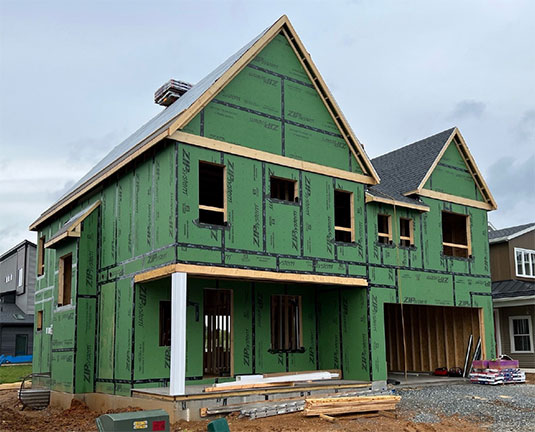What makes a home energy efficient?
August 3rd, 2023 | by James Graybill | Posted in FAQ | #energy efficient, #energy star, #new homeA home is considered energy-efficient when designed and built to minimize energy consumption while maximizing comfort and reducing environmental impact. Several factors contribute to making a home energy efficient:
- Insulation: Proper insulation throughout the home, including walls, roof, and floors, helps maintain a consistent indoor temperature by minimizing heat transfer between the interior and exterior. This reduces the need for heating and cooling, resulting in lower energy consumption.
- Energy-Efficient Windows and Doors: Installing energy-efficient windows and doors with double or triple glazing, low-emissivity coatings, and weatherstripping prevents heat loss during winters and heat gain during summers. It reduces the reliance on artificial heating and cooling systems.
- Efficient Heating, Ventilation, and Air Conditioning (HVAC) Systems: Selecting energy-efficient HVAC systems, such as high-efficiency furnaces, heat pumps, and air conditioners, can significantly reduce energy consumption. Regular maintenance and proper sizing of HVAC systems are also essential for optimal efficiency.
- Energy-Efficient Lighting: We install LED lights and or light bulbs in all fixtures in our new homes. Utilizing natural light through well-placed windows, skylights, and light tubes can also minimize the need for artificial lighting during the day.
- Energy-Efficient Appliances and Electronics: Choosing energy-efficient appliances, such as refrigerators, washing machines, dishwashers, and televisions, can result in substantial energy savings over time. Look for appliances with ENERGY STAR ratings, as they meet specific energy efficiency guidelines.
- Water Efficiency: Efficient plumbing fixtures, such as low-flow toilets, faucets, and showerheads, can minimize water consumption.
- Smart Home Technology: Utilizing smart thermostats, occupancy sensors, programmable timers, and energy monitoring systems allows homeowners to have better control over energy usage. These technologies can optimize energy consumption based on occupancy patterns and user preferences.
Alden Homes uses a third-party Inspector for insulation, sealing, and energy audits to help identify areas of energy loss or inefficiency. Addressing issues like air leaks, ductwork problems, and inefficient insulation ensures the home operates at its maximum energy efficiency potential.
Remember, energy efficiency is a holistic approach that involves multiple factors working together. Implementing these measures can reduce energy consumption and environmental impact and lead to long-term cost savings for homeowners. That is why Alden Homes builds energy star rated homes.
